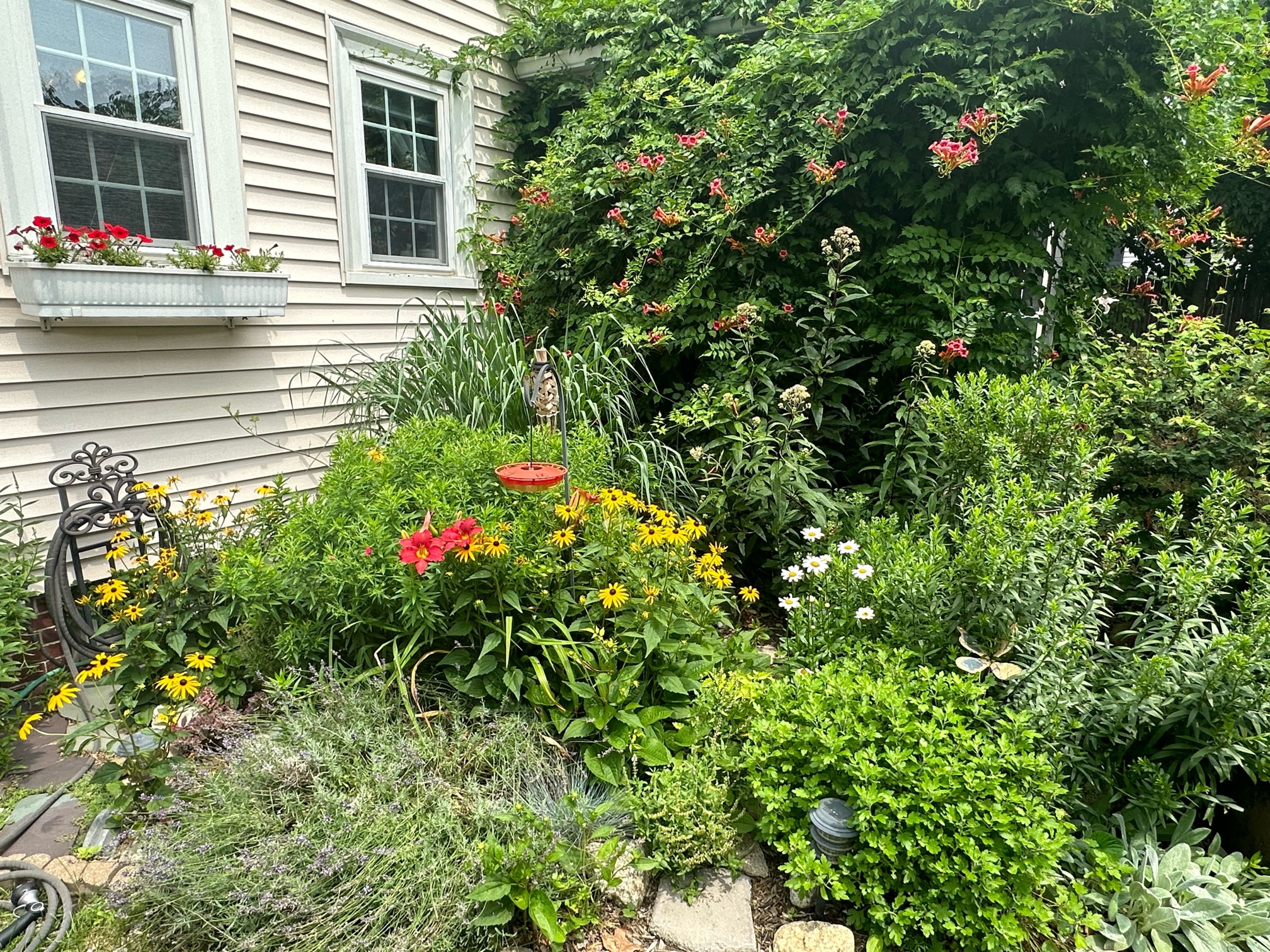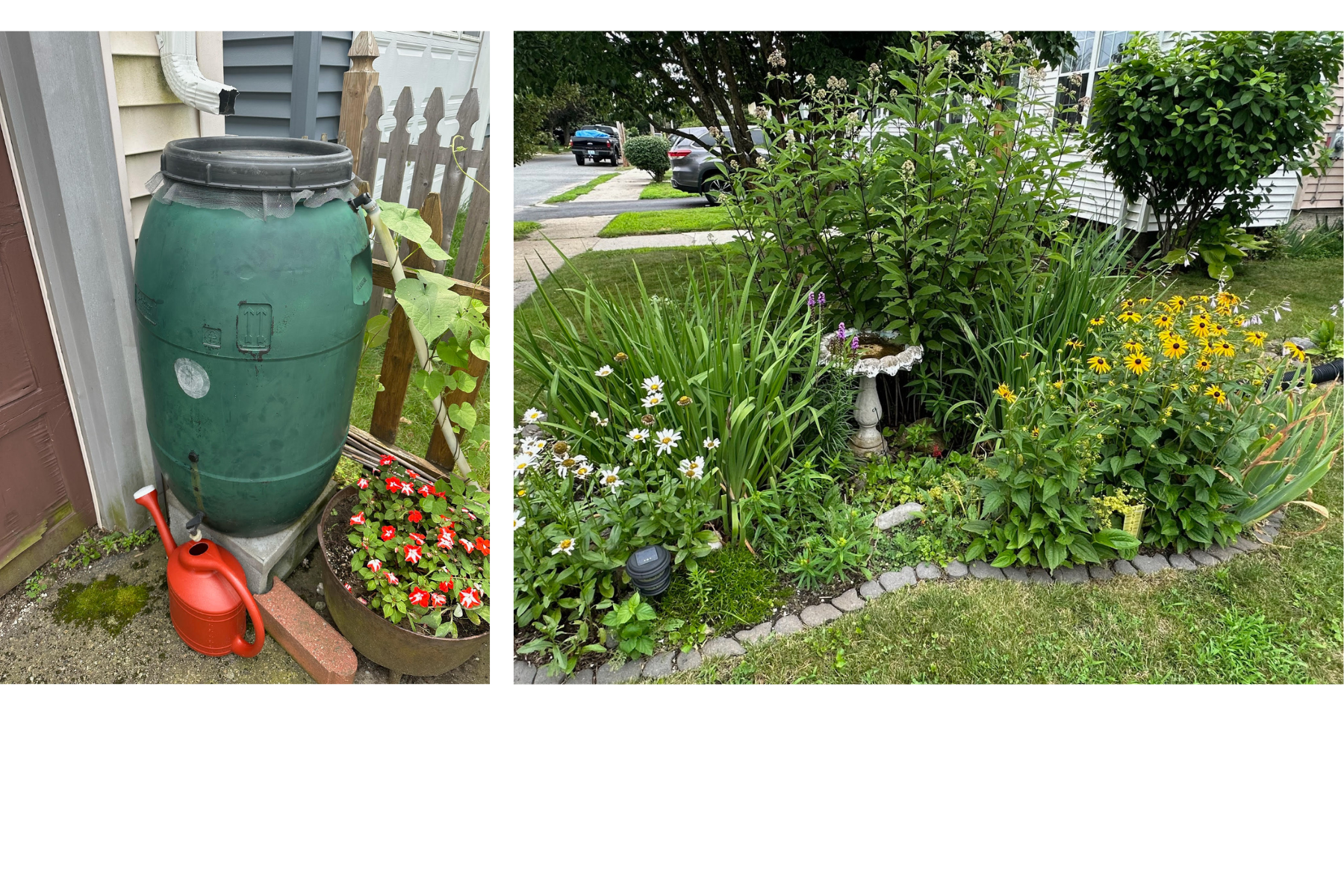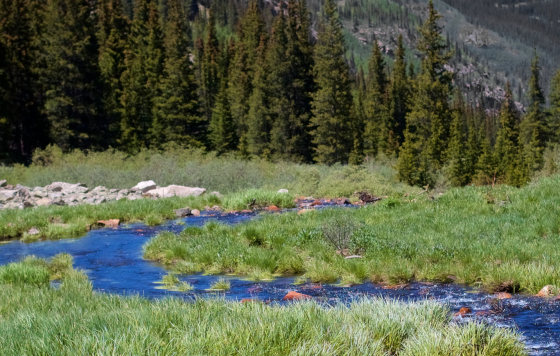
Wildfires. Flooding. Heat warnings. Have you ever felt like the drumbeat of bad climate news is discouraging you from taking action? It’s time to plant something and watch it grow! Gardening - whether in your backyard, in a sunny windowsill, or in a community plot - can reduce stress and anxiety while helping the Earth. Here’s how to make your garden eco-friendly and climate resilient!
Need nutrients for your soil? Choose compost - not chemicals! Chemical fertilizers are often washed into nearby waterways during a heavy rain event and threaten the health of Narragansett Bay. Instead, if you are able to, try composting at home!
Start with a bin like an Earth Machine that will let worms and other garden friends in but keep rodents out. (Nobody wants to be *that* neighbor…) Collect food scraps in a bowl or bucket in the kitchen to take outside. Generally, vegetables, fruits, eggshells, leaves, lawn clippings, grains, tea bags (with no strings or staples), nuts, and coffee grounds are all great for backyard compost. Do not include oils, meats, or dairy products. Balance the “green” scraps and yard waste by adding three times as much “brown” material like dry leaves or hay. Stir, keep moist, and wait! By next year, you will have a steady supply of fantastic homemade compost to use to build your garden’s soil.
If you can’t compost at home, check to see if there is a community compost option in your area. For example, Groundwork RI’s Harvest Cycle compost program in Providence will pick up buckets of food scraps from your household by bike and return compost for your garden in the spring! Whether at home or as part of a community program, composting reduces waste sent to the landfill and can improve your soil without polluting nearby waterways. It’s a win win!
Another way to protect nearby waterways is to install a rain barrel or rain garden on your property. Both capture rainwater during storms and slow down its return into waterways. Before the construction of impermeable surfaces like roads and rooftops, rainwater would be filtered by leaf matter and soil before working its way into nearby streams. Now, large rain storms result in fast-moving stormwater that collects debris, oil, and litter from the street before dumping into a nearby stream or river. Rainwater captured in a rain barrel or rain garden can reduce the amount of stormwater and be used to water your backyard garden. Check out this great rain garden brochure from our friends at Audubon Society of Rhode Island to get started!
Plant native species! Your home or community garden is part of the local ecosystem, so make sure you plant things that are native to the area. For example, joe-pye weed, cardinal flower, and blue flag iris are native plants that do well in a rain garden. Planning for next year? Mark the Southside Community Land Trust’s 2024 Rare and Unusual Plant Sale on your calendar to stock up on plants that actually belong in Rhode Island. Make your garden a haven for local birds and migrating monarchs!
Eat local! No matter the size of your garden, eating locally can help fight the climate crisis. Picking basil you grew yourself in your windowsill has a much smaller carbon footprint than eating produce trucked halfway across the country. And it’s more fun! If you don’t have access to enough outdoor space to grow your own vegetables, see if there is a community garden plot available nearby or support local farmers by buying produce at your local farmers market.
Fighting the climate crisis can be exhausting and there can be real feelings of loss as weather patterns and ecosystems rapidly change. But gardening is an act of radical optimism. Plant something for the future, watch it grow, and save the world.



